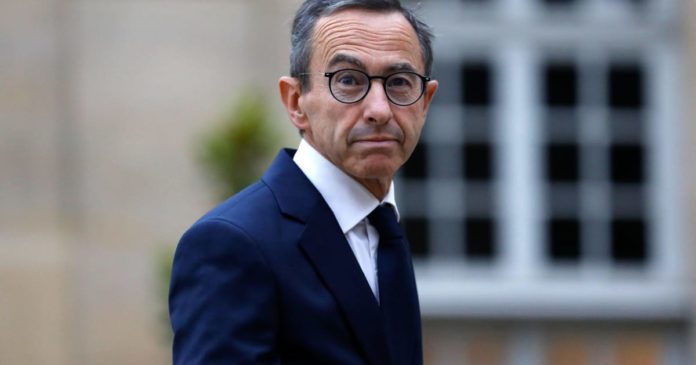Lescure, a former member of the Socialists who threw his support behind Macron in the early days of his first presidential campaign, echoed the concerns of many left and centrist-leaning pro-Macron politicians worried about the rightward tilt of Barnier’s government.
On Sunday, Gabriel Attal, Barnier’s predecessor who now presides over a group of pro-Macron lawmakers in the National Assembly, told his troops that he would ask Barnier to “clearly state in his general policy statement that there will be no going back on ART [assisted reproductive technology], abortion rights or LGBT rights.”
Attal, the first openly gay prime minister in French history, added that he was “personally affected” by some of the votes of new Cabinet members on those issues. New Interior Minister Bruno Retailleau and other Republican ministers voted against a bill legalizing same-sex marriage in 2013, and, more recently, against allowing same-sex couples and single women to access ART; against a bill banning discredited “conversion therapies;” and against the constitutional safeguarding of abortion rights.
Retailleau’s ascension has been among the most concerning to Macron’s allies. Retailleau has pushed to scrap the State Medical Aid Scheme, which provides full coverage of health care costs to undocumented foreigners who have been in France for at least three months and said that second- and third- generation immigrants had “regressed toward their ethnic origins,” a statement which led many to accuse Retailleau of racism as it implies that the children of immigrants are somehow less French than other citizens.
Another controversial appointment was Laurence Garnier, France’s new secretary of state for consumer affairs. Garnier also voted against key legislation on LGBTQ+ rights and voiced her opposition to an AIDS prevention campaign which featured gay couples.
Retailleau, Garnier and the rest of the new government were revealed over the weekend after a record-long two-month transition period that followed a snap election this summer. Following the vote, Macron chose not to appoint a prime minister from the pan-left New Popular Front coalition, which won the most seats in the National Assembly but fell short of an absolute majority. Instead, the French president built a coalition with the weakened conservative party Les Républicains, of which Barnier is a member.


